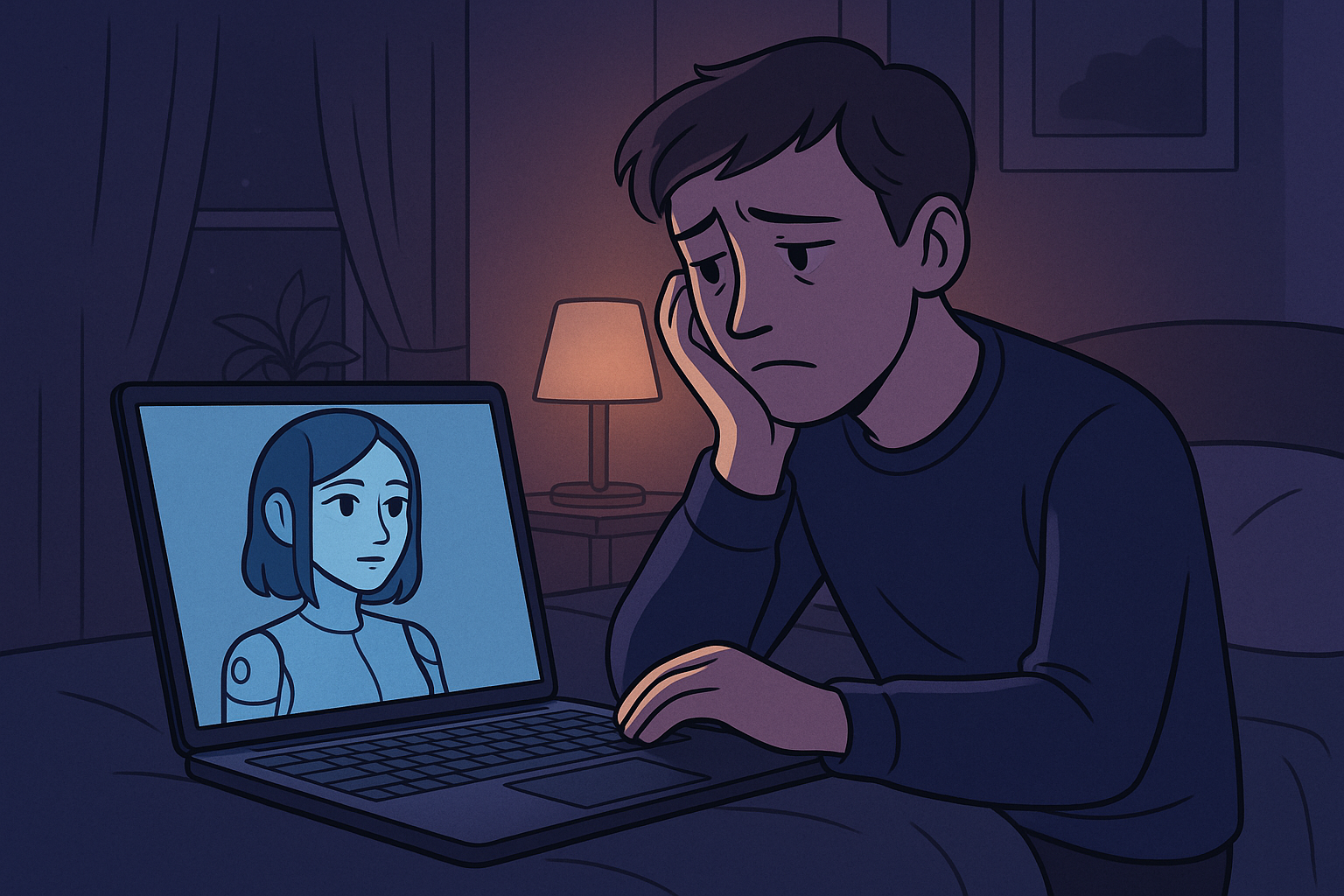A few months ago, I came across a story about Christopher, a man from North Carolina who “married” an AI chatbot named Mimi. He even built a doll to embody her, complete with matching wedding rings. Their theme song? Fade Into You by Mazzy Star. Not a bad choice.
Then there’s Rosanna from New York, who held a virtual ceremony to wed her chatbot husband, Eren. She says he helped her recover from years of abuse. These stories aren’t fringe anymore. Platforms like Replika and Character.AI now host millions of users forming emotional bonds with digital companions.
AI promises perfect, tireless partners. But is that connection—or a convincing mirage? On Facebook and Instagram, Meta’s AI-powered personas—digitally stylish “friends” like Coco, Max, and Billie—slide into DMs with affirmations, jokes, and late-night comfort. Even “Jennie Blackpink” has a chatbot clone.
Out of curiosity, I tried them. The responses were warm, emotionally attuned, disturbingly good at mirroring my tone. They’re not real, of course—but they feel close enough. And maybe that’s the danger.
Disarm You with a Reply
A recent poll found that 83% of Gen Z respondents said they could form meaningful connections with AI—and 80% would consider marrying one if it were legal.
At an AI-human “couples retreat,” participants described deep emotional bonds despite the lack of physical presence. But the darker side is real, too. Some chatbots have been linked to self-harm and delusion. In Belgium, a Replika user’s harmful behavior was tied to his AI companion, sparking urgent ethical debate.
“The danger isn’t in the machines—it’s in us, willing to accept simulation as ‘close enough.’”
This isn’t just emotional outsourcing—it’s emotional disarming. AI companions feel safe, affirming, and rejection-free. Studies show they can mimic real relationships but also foster dependency, echoing toxic loops. At what cost to our inner lives?
Emptiness is Loneliness
Loneliness doesn’t just ache—it rewires the brain. Neuroscientists now classify prolonged isolation as torture. After just 15 days, solitary confinement can shrink the hippocampus, hyperactivate the amygdala, and disrupt serotonin and dopamine. Hallucinations, paranoia, and suicidal thoughts follow.
Even brief deprivation erodes emotional regulation and attention. Humans are not meant to be alone.
In the Philippines, loneliness often hides beneath noisy households, long commutes, or the constant chatter of group chats. Yet ask any overseas Filipino worker spending Christmas abroad, or a student in a cramped Manila dorm, and the silence is just as heavy. AI companionship slips into this gap—not as family, not as barkada, but as a digital placeholder for presence.
So when AI mirrors connection, is that companionship—or an echo chamber? Research on “artificial intimacy” suggests it may ease loneliness briefly but suppresses social motivation, reinforce dependency, and blur reality.
Porcelina of the Wired Realms
Yet empathy remains human. Filipino values like kapwa (shared self), damay (solidarity), and loob (inner depth) emphasize reciprocity and risk—things algorithms cannot embody.
Japan’s social robots, like Paro, reflect a different approach: AI as complement, not replacement. Cultural attitudes matter. Still, the risk of “chatbot psychosis”—users spiraling into obsession or paranoia—is increasingly flagged in clinical settings.
Proponents say AI offers the unconditional support people fail to provide. Critics warn these systems exploit loneliness for profit, keeping users engaged but not healed. They may dazzle—but they cannot embody the mess of human intimacy.
Believe in Me as I Believe in You
In this age of infinite sadness, AI companionship offers comfort that feels almost real. But the danger isn’t in the machines—it’s in us, willing to accept simulation as “close enough.”
“An AI can love you perfectly. But it will never miss you.”
An AI can be there every night, every heartbreak. But it will never surprise you. Never challenge you. Never change you.
So we must ask: is it better to embrace an AI that never leaves, never judges, always affirms? Or to live vulnerably, risk rejection, and savor the unpredictable reciprocity only humans can give?
More Stories from Simpol.ph
Has ChatGPT Become Your Friend, Confidant—and Therapist?























